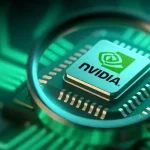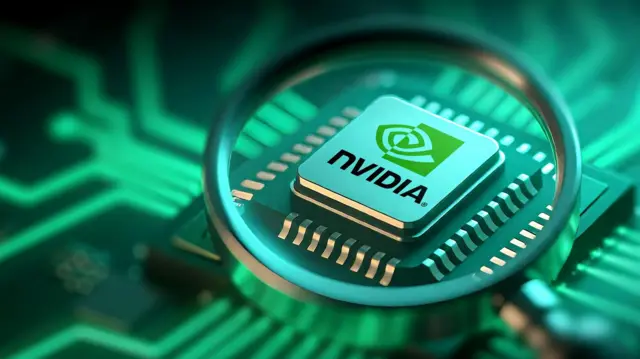In a case that has captured national attention, the FBI has revealed that DNA evidence has directly connected a suspect in the alleged plot involving conservative commentator Charlie Kirk to a critical crime scene. The revelation marks a major turning point in the investigation, underscoring the power of forensic science in modern law enforcement while also sparking renewed debate about privacy, politics, and the limits of criminal investigations. With Charlie Kirk’s profile as one of the most outspoken conservative voices in America, the story has quickly grown beyond the courtroom and into the broader national conversation.
- The Breakthrough in the Case
- Why Charlie Kirk Is at the Center of Attention
- The Role of DNA in Modern Investigations
- Political and Legal Implications
- The Broader Debate About Privacy and Surveillance
- Public Reaction and Media Coverage
- The Historical Power of DNA Evidence in Trials
- Expert Perspectives on the Kirk Case
- The Road Ahead
- FAQs
- What evidence links the suspect to the Charlie Kirk case?
- Why is DNA evidence so important in this investigation?
- How could the defense challenge the DNA findings?
- What role does Charlie Kirk play in this case?
- Does the use of DNA evidence raise privacy concerns?
- How has the public responded to the FBI’s revelation?
- Conclusion
The use of DNA evidence in criminal investigations is not new, but its implications in this case are profound. By linking the suspect to a key scene, federal investigators have strengthened their case, potentially shifting both legal strategies and public opinion. To fully understand the weight of this development, one must consider the background of DNA forensics, the highly charged political climate surrounding Kirk, and the broader ramifications for civil liberties and trust in institutions.
The Breakthrough in the Case
Federal officials confirmed that DNA traces collected at the scene provided the crucial evidence needed to tie the suspect directly to the alleged plot. According to sources familiar with the investigation, investigators had struggled for weeks to establish a definitive link until the forensic analysis was completed. The FBI has long relied on DNA profiling as the “gold standard” of evidence, and in this instance, it played a decisive role in bridging gaps that eyewitness accounts and digital trails could not conclusively fill.
This finding not only solidifies the government’s narrative but also raises questions about how such evidence might shape the trial. Defense attorneys are expected to scrutinize the methods used to collect and test the DNA, as even the slightest irregularity could be grounds for challenge. Nevertheless, the FBI’s announcement has been presented as a game-changer that reinforces the reliability of its case.
Why Charlie Kirk Is at the Center of Attention
Charlie Kirk is not just another political commentator; he is the founder of Turning Point USA, a conservative youth organization that wields significant influence on college campuses and across the political landscape. His outspoken support of former President Donald Trump, critiques of progressive policies, and high-profile media appearances have made him both a celebrated figure on the right and a controversial one on the left.
The suspect’s alleged involvement in a plot connected to Kirk has therefore ignited intense reactions. Supporters argue that the incident reflects the dangerous climate conservatives face in public life, while critics point to the investigation as yet another example of America’s political polarization turning toxic. By linking the suspect through DNA evidence, the FBI has made the case harder to dismiss as rumor or political theater, grounding it instead in hard science.
The Role of DNA in Modern Investigations
DNA has revolutionized criminal justice over the past three decades. According to the FBI, DNA profiling has solved more than 500,000 cases in the United States alone, ranging from cold murder investigations to missing persons cases. Its reliability, when collected and tested properly, is considered nearly unassailable, with error rates often cited as less than one in a billion.
In this case, experts say DNA was especially critical. While digital footprints like text messages, phone calls, and online activity often provide circumstantial evidence, DNA physically ties a person to a place. As forensic scientist Dr. Melissa Harper explains, “DNA doesn’t just suggest association—it proves presence. That kind of evidence can make the difference between suspicion and conviction.”
Political and Legal Implications
The involvement of Charlie Kirk has transformed this investigation from a routine criminal matter into a politically charged event. For supporters of Kirk, the FBI’s discovery underscores the seriousness of threats faced by public figures who challenge prevailing political narratives. For critics, it raises questions about whether the case will be used to amplify partisan arguments rather than remain focused on facts.
From a legal perspective, the presence of DNA evidence adds weight to the prosecution’s argument. Historically, juries tend to give great credibility to DNA findings, sometimes even more than eyewitness testimony. Legal analysts believe that if the DNA evidence holds up under scrutiny, it could prove decisive in securing a conviction. However, defense attorneys may attempt to argue contamination, lab errors, or mishandling of samples—arguments that have occasionally succeeded in undermining forensic evidence in the past.
The Broader Debate About Privacy and Surveillance
Beyond the immediate case, the revelation has reignited discussions about how DNA evidence is collected and stored. Civil liberties advocates warn that the expansion of DNA databases raises troubling questions about privacy. According to the American Civil Liberties Union (ACLU), more than 26 million Americans have had their DNA collected through law enforcement databases or private services like ancestry testing. Critics argue that while DNA evidence is powerful, its misuse could lead to surveillance overreach or wrongful accusations.
The Kirk case highlights this tension. On one hand, DNA evidence offers clarity and strengthens justice. On the other, it demonstrates the growing power of the state to use highly personal biological information in ways that may outpace existing legal safeguards.
Public Reaction and Media Coverage
News of the FBI’s breakthrough has dominated headlines, with commentators across the political spectrum weighing in. Conservative media outlets have framed the revelation as proof of real threats facing right-wing figures, while mainstream networks have focused on the technical and legal aspects of the case. Social media platforms have been flooded with debate, with hashtags related to Charlie Kirk and the FBI trending for days after the announcement.
According to media analytics firm NewsWhip, stories involving Kirk and the DNA evidence generated more than 1.2 million social interactions within 48 hours. The surge reflects both the high-profile nature of Kirk and the public’s fascination with forensic science.
The Historical Power of DNA Evidence in Trials
To appreciate the significance of the FBI’s finding, it is helpful to consider past cases shaped by DNA. From the conviction of serial killers to the exoneration of wrongfully accused individuals, DNA has transformed the justice system. According to the Innocence Project, more than 375 people have been freed from prison in the United States thanks to DNA evidence overturning false convictions.
In the Kirk case, DNA plays a different role—not to exonerate, but to implicate. Its presence raises the stakes dramatically, potentially leaving the defense with fewer avenues for creating reasonable doubt. As history shows, once DNA enters a courtroom, it often becomes the defining element of the trial.
Expert Perspectives on the Kirk Case
Legal and forensic experts have offered varying perspectives on the case’s trajectory. Former federal prosecutor Lisa Bloom noted, “When the FBI ties a suspect to a crime scene through DNA, it dramatically increases the likelihood of conviction. The defense has an uphill battle unless they can prove contamination or mishandling.”
Forensic specialists, however, caution against overstating the infallibility of DNA. Dr. James Porter, a professor of forensic science, explained, “DNA is only as good as the process behind it. Chain of custody, lab conditions, and interpretation all matter. If even one step falters, the entire case can be thrown into question.”
The Road Ahead
As the case moves forward, all eyes will be on how the defense chooses to respond. Will they challenge the credibility of the DNA findings, or will they shift strategy toward questioning motive and intent? The trial promises to be one of the most closely watched in recent years, not only for its legal significance but also for its broader impact on politics and public trust.
Regardless of the verdict, the FBI’s announcement has already changed the narrative. What was once seen as a politically charged investigation now carries the weight of forensic proof, making it far harder for skeptics to dismiss.
FAQs
What evidence links the suspect to the Charlie Kirk case?
The FBI confirmed that DNA evidence directly connects the suspect to a crime scene, strengthening their case and making it more difficult for the defense to dispute the suspect’s involvement.
Why is DNA evidence so important in this investigation?
DNA evidence is considered one of the most reliable forms of proof because it physically places a person at a scene. Unlike digital or circumstantial evidence, DNA offers scientific certainty that can sway juries and courts.
How could the defense challenge the DNA findings?
The defense may argue contamination, improper handling, or errors in testing. While rare, such challenges have succeeded in past cases where forensic procedures were not strictly followed.
What role does Charlie Kirk play in this case?
Charlie Kirk is the central figure allegedly targeted in the incident. His prominence as a conservative commentator has elevated the case into a matter of national interest, drawing significant media and political attention.
Does the use of DNA evidence raise privacy concerns?
Yes. Civil liberties groups caution that expanding DNA databases could lead to privacy risks and potential government overreach. The Kirk case has reignited debate about how such evidence should be collected, stored, and used.
How has the public responded to the FBI’s revelation?
The news has dominated headlines and social media, generating millions of interactions. Reactions are divided along political lines, with conservatives emphasizing the seriousness of threats and others focusing on the implications of DNA use in law enforcement.
Conclusion
The FBI’s discovery of DNA evidence linking the suspect in the Charlie Kirk case to a crime scene represents a pivotal moment in both the investigation and the national conversation about justice. It highlights the extraordinary power of forensic science to transform legal proceedings, while also raising pressing questions about privacy, politics, and the balance of power between citizens and the state. As the trial unfolds, it will not only determine the fate of one suspect but also set important precedents for how America navigates the intersection of science, law, and political life.











